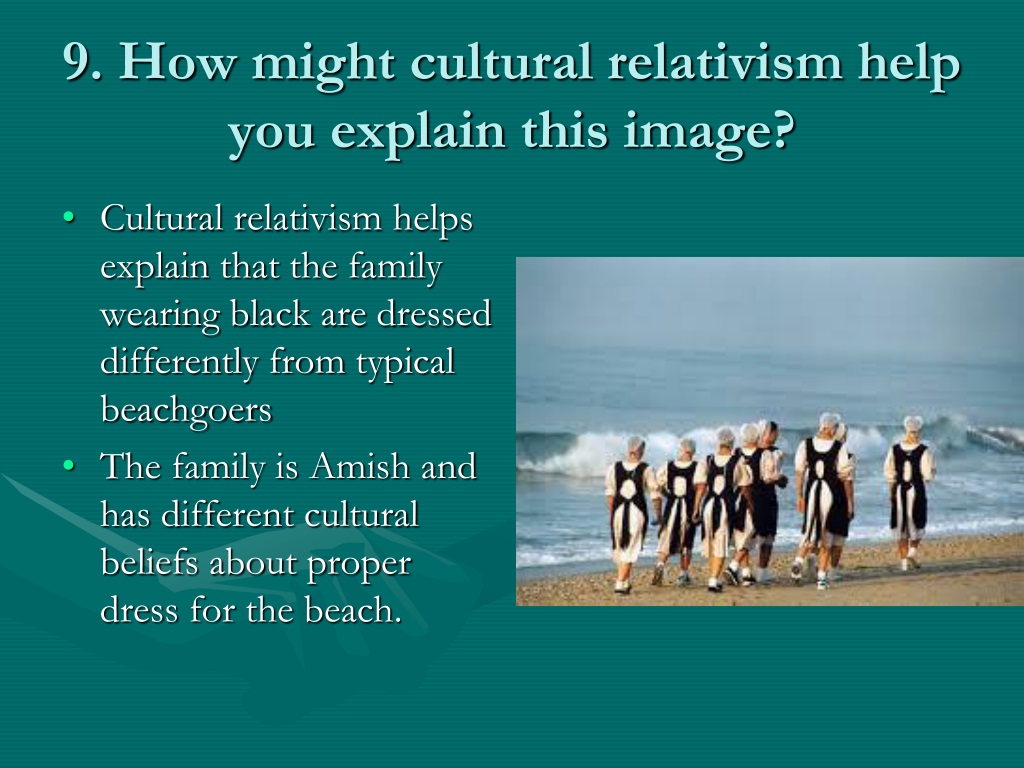Imagine you’re traveling through a bustling marketplace in a foreign country. The sights, sounds, and smells are overwhelming, and you see people eating a dish that seems entirely unfamiliar to you – perhaps something with a strange texture or pungent aroma. Would you judge them for their choices, or would you try to understand the cultural context behind their food? This scenario speaks to the heart of cultural relativism, a concept that encourages us to approach other cultures with an open mind and a willingness to understand their practices within their own framework.

Image: www.worldatlas.com
Cultural relativism is a fundamental principle that suggests we should refrain from judging other cultures based on our own values and beliefs. Instead, it encourages us to appreciate the diversity of human experiences and recognize that different cultures have developed unique perspectives on morality, ethics, and societal norms. This principle is particularly relevant in our increasingly interconnected world, where we encounter individuals from various backgrounds and cultural traditions.
Exploring the Roots of Cultural Relativism
The concept of cultural relativism dates back to the early 20th century, gaining prominence with the rise of anthropology and the realization that human societies are incredibly diverse. Anthropologists like Franz Boas, a pioneer in American anthropology, argued that cultures should be understood within their own contexts, not through the lens of Western cultural biases. This idea challenged the prevailing belief that Western civilization was superior to other cultures and paved the way for a more nuanced understanding of cultural differences.
Cultural relativism is often associated with the work of anthropologist Melville Herskovits, who, in his 1948 book “Man and His Works,” proposed the concept of “cultural relativity,” suggesting that “the values and standards of cultures differ, and that each culture should be judged by its own values and standards.” This idea emphasizes the importance of considering the historical, social, and environmental factors that shape cultural practices and values.
Understanding the Core Principles
Cultural relativism rests on several core principles:
- No Universal Morality: This principle suggests there is no single, absolute set of moral values that applies to all cultures. Instead, morality is shaped by cultural norms and traditions, leading to diverse ethical frameworks across societies.
- Cultural Values are Relative: Cultural relativism highlights the fact that values and beliefs are relative to the specific culture in which they are held. There is no objective standard by which to judge these values, as they are deeply embedded in complex cultural traditions.
- Understanding before Judging: This principle encourages us to attempt to understand the reasons behind cultural practices before passing judgment. This involves recognizing the historical, social, and environmental factors that influence a culture, leading to a more nuanced and less judgmental approach.
The Benefits of Embracing Cultural Relativism
The embrace of cultural relativism brings numerous benefits:
- Enhanced Tolerance and Understanding: By practicing cultural relativism, we become more tolerant of differences and develop a deeper understanding of the motivations behind diverse cultural practices.
- Reduced Cultural Conflicts: Cultural relativism promotes peaceful coexistence between different cultures by emphasizing understanding and respect rather than judgment and condemnation.
- Greater Cultural Appreciation: By acknowledging the validity of diverse perspectives, cultural relativism helps us appreciate the richness and variety of cultures across the world.
- Promotes Empathy and Compassion: By understanding the cultural context behind another person’s actions, we can develop empathy and compassion for those who may seem different from us.

Image: fity.club
Navigating the Challenges of Cultural Relativism
While cultural relativism is a powerful tool for promoting understanding and tolerance, it’s not without its challenges.
- The Difficulty of Neutrality: Practicing true cultural relativism can be challenging, as we all hold certain values and beliefs that may influence our perspectives. It’s important to be aware of our own cultural biases and strive for neutrality, even when encountering practices that differ greatly from our own.
- The Dilemma of Universality: While cultural relativism emphasizes the relativity of cultural values, there are certain universal values, such as the value of human life, that many cultures share. It’s important to recognize the boundaries of cultural relativism and not tolerate practices that violate fundamental human rights.
- The Potential for Justification of Harmful Practices: Cultural relativism can be misconstrued as condoning harmful practices, such as female genital mutilation or honor killings, simply because they are accepted within certain cultural contexts. It is essential to differentiate between cultural practices and universally recognized human rights violations.
Beyond the Theory: Cultural Relativism in Action
Cultural relativism is not just a theoretical concept; it has real-world applications in various fields:
- Education: Cultural relativism is a core principle in multicultural education, emphasizing the importance of teaching students about diverse cultures and fostering tolerance and understanding.
- Healthcare: Healthcare professionals must be culturally sensitive to provide effective care to patients from diverse backgrounds. Cultural relativism helps healthcare providers understand the nuances of health beliefs and practices in various cultures.
- Business: In an increasingly globalized marketplace, businesses need to understand the cultural contexts of their customers and employees to build successful relationships. Cultural relativism can help companies navigate cultural differences and foster strong business relationships.
Expert Perspectives on Cultural Relativism
Experts in anthropology, sociology, and philosophy have diverse perspectives on cultural relativism:
- Raymond Williams: Cultural scholar Raymond Williams argued that cultural relativism is essential for understanding the diversity of human experiences, highlighting the importance of understanding cultural contexts.
- Ruth Benedict: Anthropologist Ruth Benedict emphasized the importance of cultural relativism for promoting peaceful coexistence between different cultures, advocating for tolerance and understanding.
- James Rachels: Philosopher James Rachels wrote extensively about cultural relativism, arguing that it is a valuable tool for promoting tolerance but cautioned against its potential to justify harmful practices.
Actionable Tips for Embracing Cultural Relativism in Everyday Life
You can embrace cultural relativism in your daily interactions with others:
- Be Curious and Ask Questions: Instead of assuming, be open to learning about other cultures and ask questions to gain a deeper understanding of their perspectives.
- Challenge Your Own Assumptions: Be critical of your own cultural biases and assumptions, recognizing that your perspective may not be universal.
- Practice Active Listening: Listen attentively to people from other cultures and try to see the world from their point of view.
- Celebrate Cultural Diversity: Embrace and celebrate the richness of the world’s diverse cultures, appreciating the unique contributions each culture brings to society.
What Is The Cultural Relativism
Conclusion
Cultural relativism is a powerful tool for promoting tolerance and understanding in an increasingly diverse world. By embracing the principle of cultural relativism, we can foster peaceful coexistence, appreciate the richness of diverse cultures, and develop empathy and compassion for those different from ourselves.
However, it is crucial to approach cultural relativism with critical thinking, acknowledging its limitations and ensuring that it does not justify harmful practices. We need to constantly strive for a nuanced understanding of cultural differences, embracing the richness of diverse perspectives while promoting universal values that safeguard human rights.



/GettyImages-173599369-58ad68f83df78c345b829dfc.jpg?w=740&resize=740,414&ssl=1)


